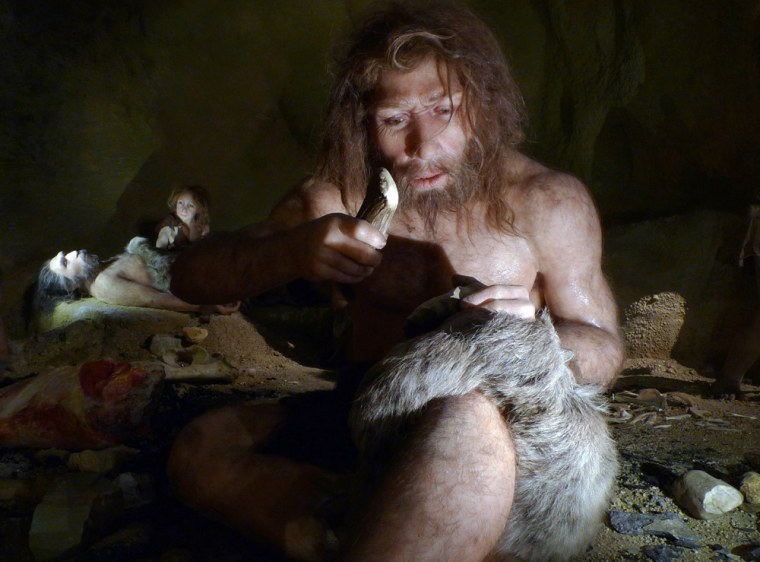The males among our earliest human ancestors may have helped jumpstart the modern human population explosion by helping females with child rearing.
This paternal investment resembled the kind of hands-on parenting many dads still display, Northwestern University researcher Lee T. Gettler suggests in a new anthropological model of human evolution.
As there are in the modern era, there were some deadbeat dads who didn't lend a hand with child care in the distant past.
"Other men might have been highly involved with direct care, engaging in behaviors not unlike what involved fathers do today," Gettler, a doctoral candidate at Northwestern, told Discovery News.
The study was published in the February issue of the journal American Anthropologist.
Dads in early human species would have aided in carrying children, as well as in their bathing, feeding, playing and teaching them the lessons of prehistoric life, says Gettler. They traded these services with the females for access to mating, allowing for monogamy and the modern family structure to develop.
Gettler's hypothesis aims to explain a mystery anthropologists have long explored. When the Homo genus branched off from other ape descendants, it grew larger by increasing caloric intake and reducing energy expenditures. The largest energy expenditures found in primate species is child-bearing and rearing.
Yet even as our pre-human ancestors grew larger, the amount of time between pregnancies — known as the interbirth interval — actually grew shorter than their smaller ancient counterparts. Females began having more, rather than fewer, children.
Gettler says that the shorter interbirth interval and the long period of child rearing characteristic in modern humans could have only happened with ancient dads lending a hand.
With ancient fathers helping to raise children, mothers didn't expend as much energy, leading to a shortened interbirth interval. As a result, the mothers reproduced more frequently.
Evolutionary biologist and biological anthropologist John Tooby of University of California at Santa Barbara agrees that fatherly care played a decisive role in human evolution. Yet Tooby, who is unaffiliated with Gettler's study, sees paternal investment impacting human dominance as a species not only because humans were able to reproduce more frequently, but because the additional care allowed us to develop better brains.
"Male provisioning allows more net parental care to go to infants, both during pregnancy and after birth, supporting a larger and more expensive brain, and a longer period of dependency," Tooby said. "So, certainly interbirth interval could shorten, but also infant quality can be heightened."
